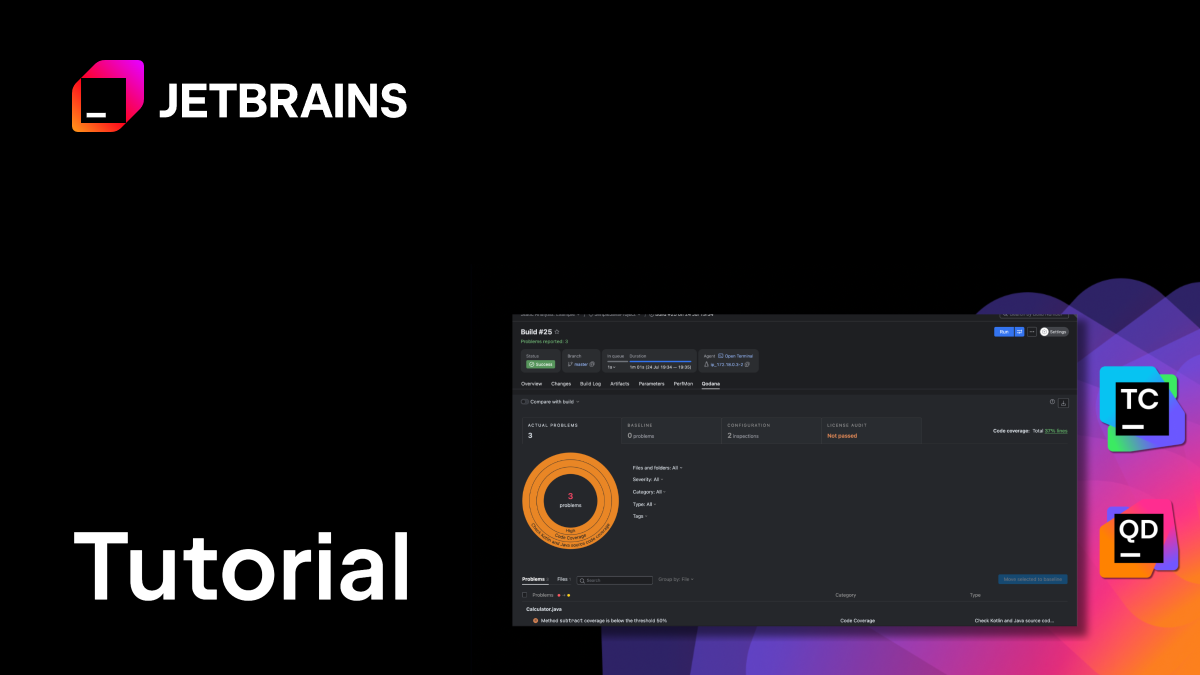Qodana
The code quality platform for teams
.NET code analysis tools: Improve your code with the Qodana .NET EAP!
If you migrated to a new version of the .NET framework, you might be having some issues using the Qodana .NET linter to scan projects. We know this can be frustrating, and we’ve been working hard to provide a .NET 8 solution in the new EAP version of the .NET linter. We want to provide you with .NET code analysis tools that can help you and your team succeed.
Starting with the 2023.3 EAP version, Qodana now supports .NET 8, and we plan to release the official linter before the end of the year. In the meantime, we encourage you to migrate to the EAP version so you can make use of the latest improvements and ensure your code is of the highest quality. You can view instructions on how to migrate here.
Table of Contents
Help us shape the future of Qodana
Try the EAP version and report any bugs or suggestions to Qodana’s YouTrack board. We are always here to help if you have any questions.
Why is it important to use .NET code analysis tools?
Analyzing .NET code is important for several reasons, particularly as it pertains to the unique characteristics of the .NET framework and its ecosystem. For example:
- Performance optimization: .NET applications can sometimes face performance issues due to inefficient code practices. Analyzing the code can help identify bottlenecks, enabling developers to optimize performance.
- Security: Security vulnerabilities can be hidden within .NET code, especially in web applications built with ASP.NET. Code analysis helps identify potential risks like SQL Injection, Cross-Site Scripting (XSS), or incorrect use of authentication and authorization mechanisms.
- Code quality and maintainability: Regular auditing with .NET code analysis tools ensures adherence to coding standards and best practices. This leads to cleaner, more maintainable code, which is crucial for long-term projects where multiple developers may be involved.
- Framework-specific issues: .NET has specific libraries and patterns (e.g., Entity Framework, ASP.NET MVC) that may introduce unique challenges. Analyzing .NET code helps catch errors and bad practices related to these frameworks.
- Dependency management: .NET applications often rely on various libraries and packages. Analyzing dependencies can help identify outdated or vulnerable packages, ensuring that the application remains secure and up-to-date.
- Debugging and testing: Static code analysis tools can catch potential runtime errors before execution (e.g., null reference exceptions). This helps in improving the reliability of the code and facilitates better unit testing and integration testing.
- Refactoring opportunities: Code analysis can uncover code smells or areas where refactoring can enhance design patterns, reduce complexity, and improve the overall architecture of the application.
- Compliance and standards: In many industries, software must conform to compliance and regulatory standards. Analyzing .NET code can help ensure compliance with these standards, as well as organizational coding guidelines.
- Facilitating collaboration: Code analysis tools often provide feedback on code quality that can be shared among teams. This helps educate developers on best practices and fosters a culture of quality and continuous improvement.
- Integration with CI/CD pipelines: Code analysis tools can be integrated into Continuous Integration/Continuous Deployment (CI/CD) pipelines, ensuring that code is continuously assessed for quality and compliance before it reaches production.
- Legacy code understanding: For teams working with legacy .NET codebases, analysis can help understand the structure and functionality of existing code, making it easier to maintain and enhance the system.
Get in touch
If you have any questions or suggestions about our .NET code analysis tools– or simply want to learn more about how Qodana can help your team and your business – post a comment here, tag us on X (formerly Twitter) or LinkedIn, or contact us at qodana-support@jetbrains.com. We’re always happy to help answer any questions or provide support.
Subscribe to Qodana Blog updates





